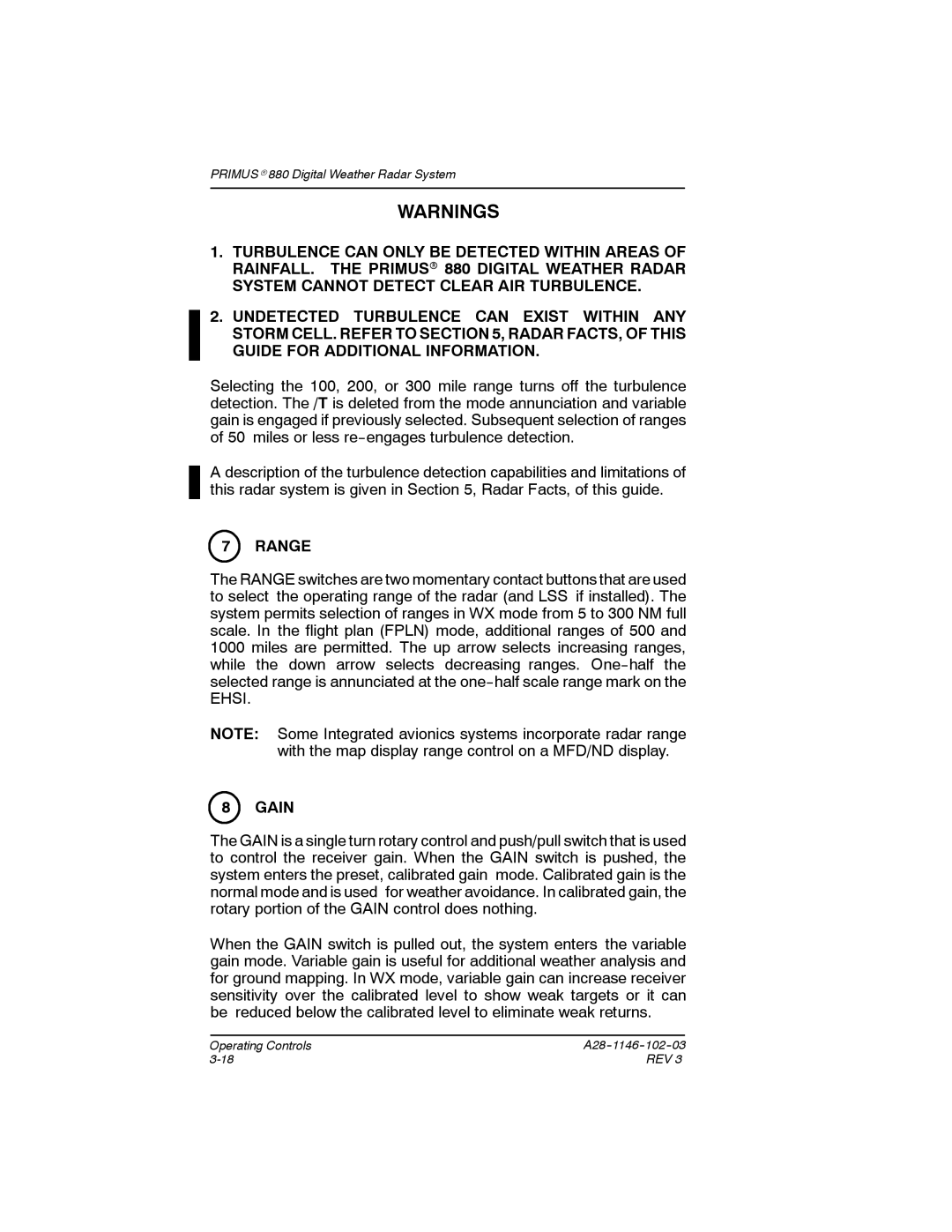
PRIMUSr 880 Digital Weather Radar System
WARNINGS
1.TURBULENCE CAN ONLY BE DETECTED WITHIN AREAS OF RAINFALL. THE PRIMUSR 880 DIGITAL WEATHER RADAR SYSTEM CANNOT DETECT CLEAR AIR TURBULENCE.
2.UNDETECTED TURBULENCE CAN EXIST WITHIN ANY STORM CELL. REFER TO SECTION 5, RADAR FACTS, OF THIS GUIDE FOR ADDITIONAL INFORMATION.
Selecting the 100, 200, or 300 mile range turns off the turbulence detection. The /T is deleted from the mode annunciation and variable gain is engaged if previously selected. Subsequent selection of ranges of 50 miles or less
A description of the turbulence detection capabilities and limitations of this radar system is given in Section 5, Radar Facts, of this guide.
7 RANGE
The RANGE switches are two momentary contact buttons that are used to select the operating range of the radar (and LSS if installed). The system permits selection of ranges in WX mode from 5 to 300 NM full scale. In the flight plan (FPLN) mode, additional ranges of 500 and 1000 miles are permitted. The up arrow selects increasing ranges, while the down arrow selects decreasing ranges.
NOTE: Some Integrated avionics systems incorporate radar range with the map display range control on a MFD/ND display.
8 GAIN
The GAIN is a single turn rotary control and push/pull switch that is used to control the receiver gain. When the GAIN switch is pushed, the system enters the preset, calibrated gain mode. Calibrated gain is the normal mode and is used for weather avoidance. In calibrated gain, the rotary portion of the GAIN control does nothing.
When the GAIN switch is pulled out, the system enters the variable gain mode. Variable gain is useful for additional weather analysis and for ground mapping. In WX mode, variable gain can increase receiver sensitivity over the calibrated level to show weak targets or it can be reduced below the calibrated level to eliminate weak returns.
|
|
|
Operating Controls | ||
REV 3 | ||
